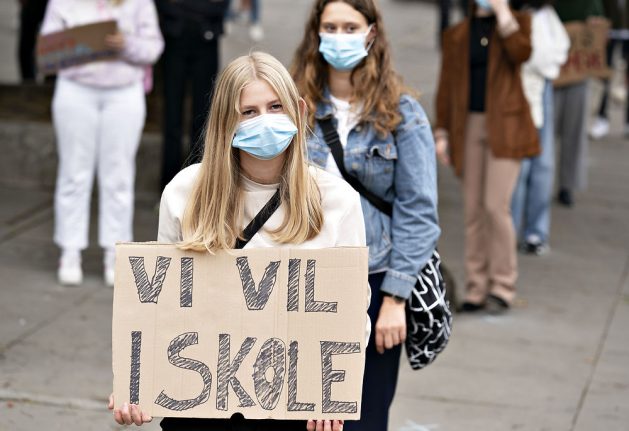A temporary closure of upper secondary schools, which are attended by 16-19 year-olds, was partially lifted along with local restrictions in the town of Silkeborg, the Ministry for Health and the Elderly said in a statement late on Monday.
Half of students at upper secondary schools in Aarhus will be allowed to return initially, with the remaining limitation set to stay in place until September 4th.
Both Aarhus and Silkeborg municipalities had been the subject of measures aimed at slowing localised increases in new Covid-19 infections.
A potential easing of Silkeborg’s restrictions was notified last week by the Danish Patient Safety Authority provided that a “positive trend” in reducing new cases continued.
As such, face masks will no longer be required in supermarkets and shopping centres in the town and restaurant closing times will be brought back into line with the rest of the country.
READ ALSO: Here’s what you need to know about Denmark’s 'phase four' reopening
Some of the restrictions in Aarhus will remain in place. That includes the obligation for cafes and restaurants to close by midnight, although this may be reviewed before the current September 4th expiry date.
Half of upper secondary school students in the city will now return to class, however.
“Management at educational institutions will be responsible for ensuring that, before physical attendance at educational institutions commences, a plan is in place for conducting classes in accordance with health authority recommendations,” the ministry statement said.
No further information was given on which students would initially return to classes.
Health minister Magnus Heunicke, in a social media post, praised Aarhus, saying the city had “done well” to enable measures to be eased.
On of the upper secondary schools in the city, Marselisborg Gymnasium, said it would wait until Wednesday before reopening.
“I’m just so happy about this. And I’m happy they’ve listened to us. But that’s precisely why we want to reopen responsibly with distancing and so on,” school director Kirsten Skov told Ritzau.



 Please whitelist us to continue reading.
Please whitelist us to continue reading.
Member comments